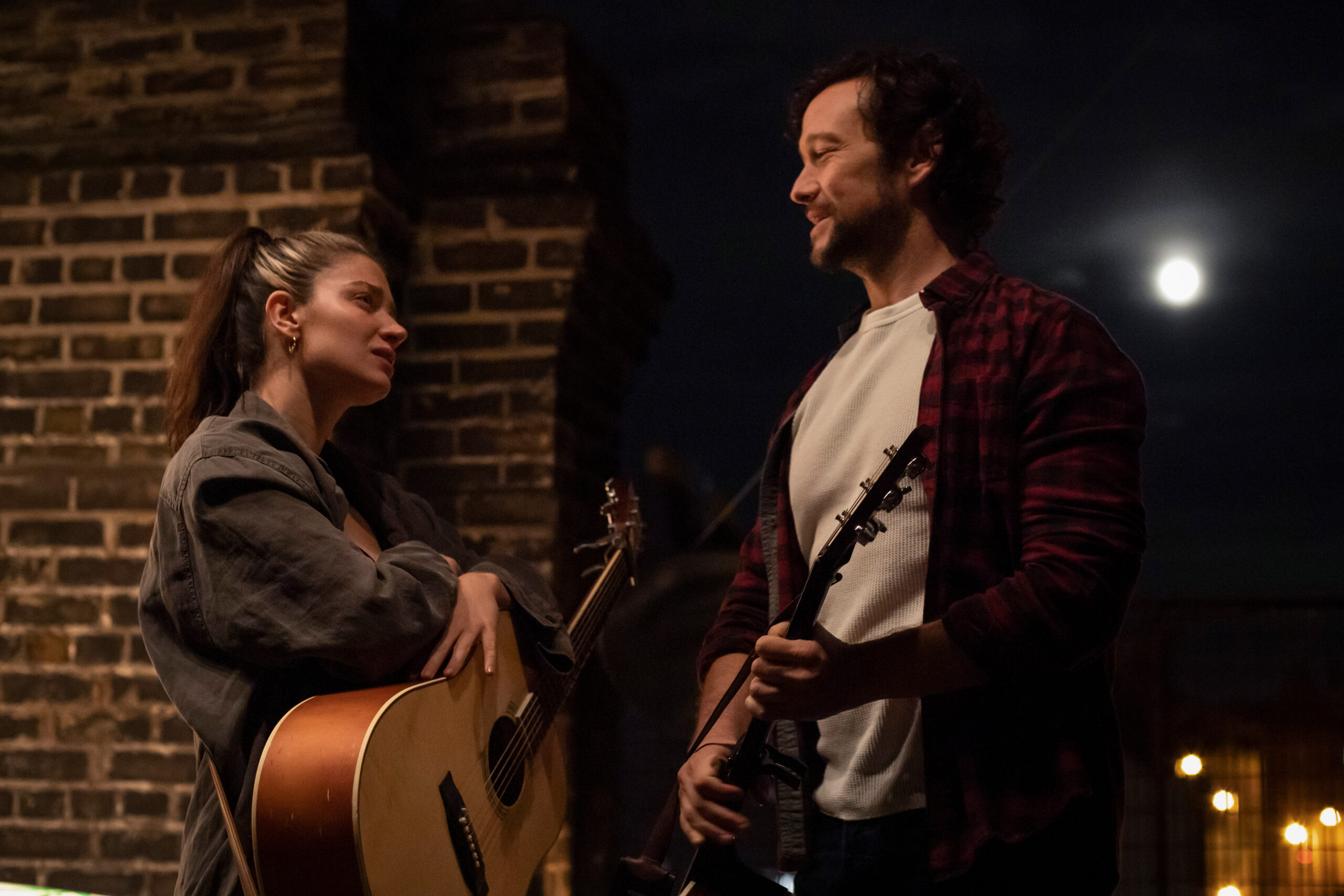From the director of Once and Sing Street comes Dublin-set Flora and Son, part love letter to music, part not-so-slick advertisement for Apple’s GarageBand. Eve Hewson plays the titular single mother, whose wayward 14-year-old son Max (Orén Kinlan) is one more slip-up away from being sent to youth detention. In an attempt to find an outlet for his unruly teenage energy, she salvages a beat-up guitar, but after he rejects it, there's nothing to do but give it a go herself — cue her belated moment of self-discovery.
Max’s anonymity in the title makes sense, then, because this is much more Flora’s story. However, while Hewson pours energy into the role, she can’t quite transcend the script's limits: Flora’s initial unlikeability (a little too emphatic), and the awkward attempts to roughen up a feel-good story with unconvincingly gritty elements. The film seems aware of audience expectations for a Carney joint, too, so it skips convincing dynamics and fleshed-out supporting characters in its rush to deliver musical setpieces (which never quite reach the catchy heights of Sing Street’s earworms, unfortunately). Still, there's real charm — and some compelling ideas about the magic of music — in here, especially once the film gets past its shaky first third and unabashedly embraces its feel-good heart.
Synopsis
Single mom Flora is at a loss about what to do with her rebellious teenage son, Max. Her efforts to keep him out of trouble lead to a beat-up acoustic guitar, a washed-up LA musician, and harmony for this frayed Dublin family.
Storyline
A single mother who feels like her life is going nowhere embarks on an overdue journey of self-discovery alongside her troubled teenage son.
TLDR
Flora and Son is a crowd-pleaser — unless the crowd includes James Blunt, who catches multiple strays from Joseph Gordon-Levitt’s character here.
What stands out
An romantic subplot comes courtesy of Flora’s online guitar teacher, the LA-based Jeff (Joseph Gordon-Levitt) — and, while their relationship certainly isn’t the most well-developed in the film, their sparse moments of bonding do allow for some passionate reflections on music’s liberating potential. What’s more, though their connection doesn’t feel quite so convincing (despite the film’s dream-like attempts to physically bridge the couple’s distance), their scenes together do feature some piercing insight into the painful vulnerability required by sharing your creativity. If the film feels blatantly manufactured in places, these unexpected moments of truth help cut through the artifice and deliver something genuinely compelling.




